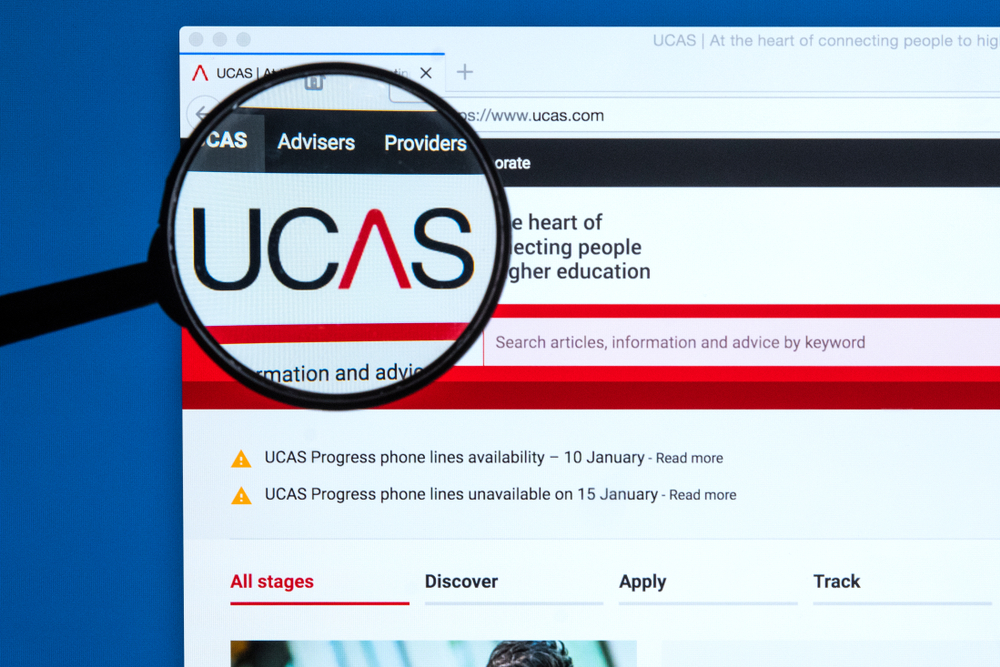Every year, amongst the thousands of university entrants, there are of course home educated teenagers. But with no school or form tutor to walk you through the process, how does a home educated teenager apply for university? Well – it’s much like the rest of the exam system you will have navigated to get to this point: it’s a case of familiarising yourself with the steps, checking the timeline – and cracking on with it.
*We were provided with courses from ICS Learn in return for writing honestly about our experiences and providing tips on Home Educating.*
UCAS begins at 16…
So – you’ve done your GCSEs, picked out some A Levels you fancy, and uni decisions come down the road, yes? Well, no, not really. You need to work backwards here, and start as your GCSE results come in. Once youo have those, then ideally you need to pick the degree course you’re aiming for, then discover what A Levels you need to sit in order to pass the entry requirements.

One point to consider is that universities – expecially the highly compeitive courses – will often want to see evidence of a full workload in your final year of schooling. Those home ed students who have staggered their exam taking may have the UCAS points required, but can they prove they still have fresh knowledge, and are capable of the full workload a student takes on within the school system?
During your first A Level year
Work hard – ultimately your grades are what get you in the door of any university course, so don;t think you have plenty of time – now is the tiume to show up and work hard.
Do keep up with your additional clubs and activities – lots of teens drop their sports clubs or youth groups, but a broad range of additional interests always looks good on your application form, as does the commitment and perseverance of continuing them through your later teen years.
Set up a UCAS profile, and familiarise yourself with the wealth of information UCAS provide
Start considering universities – give yourself a long list, read up on them, attend open days for as many as possible.
Summer months
Cut your university choices down to a lit of five in order. Now’s the time to make a start on your Personal Statement. There’s lots of advice and guidance on these online – try UCAS’ own guide, and also The Uni Guides ‘guide to writing a personal statement‘.
October
Any course at the universities of Oxford and Cambridge, or for most courses in medicine, veterinary medicine/science, and dentistry have an application deadline in mid-October (check on the UCAS site for specific deadline). You can add to your choices with a different deadline later, but don’t forget you can only have five university choices in total.

November
Finish up your personal statement – don’t forget to read it out loud to ensure it flows well, and if possible have a tutor or academic read it through.
Applicants have to submit their references and predicted grades in early November, so be ready for that (see below), and prepare for any interviews and testing – be sure any art or creative portfolios are ready.
There are more great tips on readying for application on The Uni Guide here
The UCAS Reference for a home educated teenager
When you apply through UCAS, you need a teacher to provide an academic reference – obviously an autonomous home educated teen will have a tougher time providing this. Your UCAS referee will need to comment in detail on your academic work, as well as providing predicted grades for any exams that you have yet to take (and they cannot be a relative). Many home educated A Level students will either have a few sessions with a private tutor or use an online studying course like ICS learn – in either case the tutor can act as a referee. If you are entirely autonomously learning, then one method to gain a referee is to book a few tutor sessions in each subject and ask the tutor to write a short statement about your ability in each. Another alternative would be to sit timed mock exam papers under exam conditions with the referee, the result of this to be used both for predictions and for the reference.
Application deadline – don’t wait!
The deadline is near the end of January – (for 2023 entries, it’s 25 January 2023). But Apply as soon as possible: student funding arrangements mean that as offers are made and places fill up, some courses may only have vacancies for students from certain locations. To have your best choice of places, it’s important to apply for your chosen courses by the appropriate deadlines. Not all courses will have places for all students.
If you’re applying as an independent applicant (not through a school), ask your referee to complete your reference well in advance of the deadline to avoid any delays. Remember to look into student finance too. If you need a loan or financial support, you can apply to a student finance organisation. UCAS will explain everything in detail as you run through the application, but as a brief overview:
- Fill in your details, qualifications and course choices.
- Write a personal statement to demonstrate you’ll be a good student.
- Include your reference and pay your application fee.


Trackbacks/Pingbacks